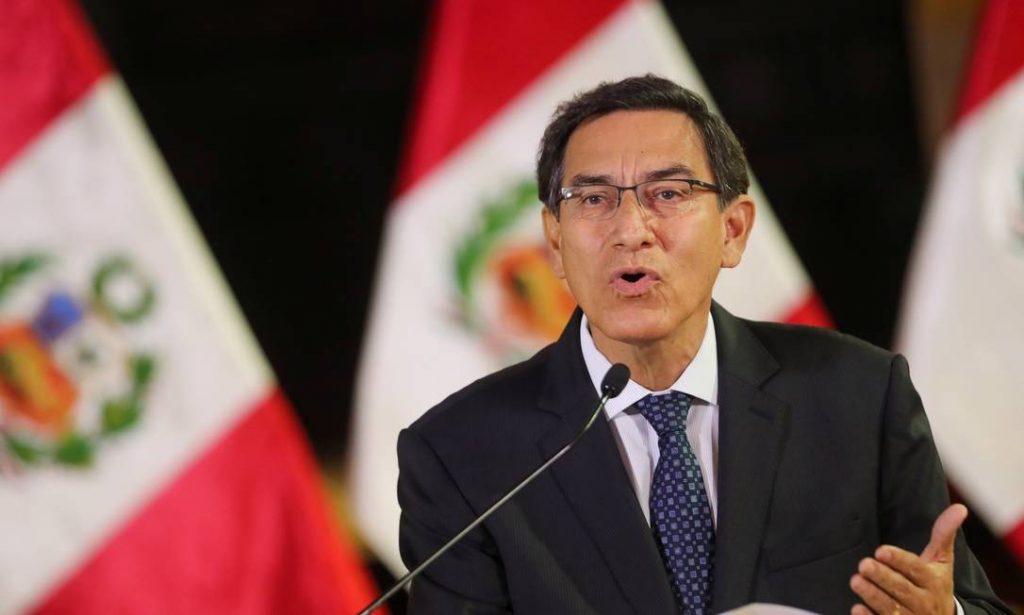RIO DE JANEIRO, BRAZIL – The Peruvian government is preparing “rescue packages” for the economy to mitigate the coming economic crisis due to the Covid-19 pandemic. President Martín Vizcarra and his government have received much praise for their handling of the pandemic domestically.

But a new measure could destroy millions of jobs and aggravate an already tense social situation. Discussions are emerging on the appropriate social and economic policy response to the crisis.
As far as medical crisis management is concerned, everything is still going according to plan during the pandemic: the target of 10,000 coronavirus tests per day has now been reached, placing Peru in second position in Latin America, after Venezuela.
Farid Matuk, the Ministry of Health’s planning official, also expressed optimism that the peak in infections could be reached in the last week of April. This would prevent overloading the country’s health systems.
As far as mitigating the economic crises is concerned, the Vizcarra government has so far done many things correctly from the economists’ perspective. The largest rescue package in the region is to be implemented – amounting to approximately twelve percent of GDP.
Small and large companies in distress are to be granted generous loans, debt repayments for businesses and private individuals have been suspended. The government will pay a bonus equivalent to nearly €100 (R$570) to needy families.
In addition, a further €200 will be paid out as interest-free loans to people who have lost their jobs due to the curfew.
“We now have room to invest what we have saved in 30 years through fiscal discipline,” comments economist Hugo Ñopo on the situation.
A key player in the daily press conferences on the coronavirus crisis is Minister of Economy and Finance María Antonieta Alva. The 35-year-old Harvard graduate surprises many with her pragmatism.
“Our priority is to ensure that we do not lose any jobs,” Alva emphasizes. She is currently planning for a slow economic rebound, provided the medical situation allows it.
Nevertheless, the question of how jobs can be secured is highly controversial and has been massively criticized by trade unions.
On Monday, the government issued a decree that will severely impact many workers: companies will be allowed to suspend wage payments to employees on fixed-term contracts for up to 90 days. Since many contracts are only valid for a few months, this effectively translates into the immediate dismissal of millions of employees.
The decree is an initiative of CONFIEP, the Peruvian employers’ association.
Trade union leader Lorena Chavera criticizes the interplay between the government and companies: “The big corporations are using the pandemic’s plight to get rid of their employees, who have slaved for them for years”.
Another controversial measure was the early release of pension funds so that people who have lost their jobs can financially survive the quarantine period. The private companies that manage these funds are cautioning about a liquidity crisis.
Furthermore, a sudden sale of assets would threaten a massive loss of value. While Vizcarra’s government initially capped disbursements on small amounts, Congress pushed through a bill that would allow disbursement of 25 percent of the total fund.
Observers say that the economic liberal policies of recent decades are now being reversed. In the view of economist Pedro Francke, the private pension system is now showing its massive shortcomings.
“I have long said that the pension fund system is poor. It is monopolized by only four operators who charge excessive commissions. We need a new pension system,” says Francke.
The health system, which is largely privatized, is also proving to be unfit for the crisis – also according to the new Minister of Health, Víctor Zamora.
The doctor appointed Minister specifically for the coronavirus crisis cautioned: “Never again should an enemy like Covid-19 hit a Peru with a feeble health system!”

